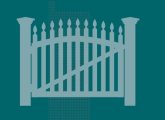The new SEN code of practice gives families more say than ever in how young people’s individual needs are met at school – Judith Enright explains how it should work…
We are all teachers of Special Educational Needs. Did you realise? That’s the message from the new Code of Practice - check out para 6.37, which speaks of teaching “differentiated for individual pupils” as the “first step” for those with needs. Of course special needs no longer include behaviour, with BESD becoming SEMH (social, emotional and mental health). This is an important rethink that will help schools focus on the underlying needs. Across the country SENCOs, like Father Christmas, are removing naughty children from their lists. And we’ll no longer be taking ‘Action’ and certainly no more ‘Action Plus’, which always sounded more like a flu medicine than a description of needs. Learners who are identified as needing SEN support will be labelled ‘SEN Support’ - a remarkably simple name, given how jargon usually floats in education like dead skin cells in the bath. We have spent many years and destroyed rainforests making ‘statements’ about what children find difficult. Now we are asked to have a Plan so that these difficulties are overcome. The Plan replaces the statement and supports a young person from age 0 to 25, ensuring joint working between Education and Health and Care services, with parents/carers able to commission services themselves using a personal budget where needed. Assess – Plan – Do – Review is the mantra for all work with young people on the register, whether they’re on SEN Support or they have an Education, Health and Care Plan. This work is co-ordinated by a qualified SENCO, but is the responsibility of all school staff. And it is led by parents, and the young people themselves as they grow up.
Assess
The new code requires full involvement of parents and demands proper training for teachers so they are equipped to identify needs. I once saw a parent and child marched over to the SENCO at parents’ evening by a teacher saying, “I’ve tried everything, she must have special needs.” The student in question was in Y11. The code sets out primary and secondary schools’ duty to assess students, and also aims to enforce early identification, before children start school, with use of a two-year-old progress check. If students’ needs become evident later when they are at school, identification starts with staff and parental observations and data that highlights who is struggling to make progress. Schools will have a range of assessment approaches for different needs – for example, at our school we use reading tests and LUCID screening software as an initial check for writing and reading difficulties, followed up by detailed assessment of dyslexia needs by a qualified assessor where appropriate.
Plan
Parents and carers are the best people to understand and plan for meeting the needs of their children. The new Plans are drawn up and reviewed annually based on the views of parents and of the young people themselves as they grow up. As schools we have to use this ‘Person Centred Planning’ at the heart of our work for the best chance of success. It was difficult to satisfy the autistic student who demanded a classroom built of chocolate cake, but we tried. When parents listen to their children, particularly as they grow into teenagers, they appreciate them as young people with an independent future ahead. External professionals such as psychologists are fonts of knowledge and ideas, but we have all found ourselves thumbing through their twenty pages of advice wondering how we can fit it in during Period 5 (Textiles). If we did, no student would have his or her beanie hat finished and ready to wear until 2021. SENCOs have traditionally translated expert reports for teachers to use in classroom practice, but written guidance has its limitations (as anyone who has just spent the summer holidays building IKEA shelves will confirm). Roles were created in my school for Lead Teachers for Autism and for Nurture. Talented subject specialist teachers, they have developed expertise in these areas. When we are planning for meeting students’ needs in lessons, we defer to them. They can, effectively, make sense of how to turn the Snartblarrt plans into a beautiful set of evenly spaced shelves. We have taken more account of parents’ views by launching an Autistic Spectrum Condition Parents and Carers’ Forum. The provision we plan in school now has better support from home. “I’ve never been to anything like that before, it was really good,” said one mother as she left the first Forum; a review which we plan to put in lights over the door. Every Local Authority has to publish a Local Offer online, which should also help schools identify resources and plan provision. Parents can look more broadly at everything that’s available and will no longer have to rely on dated websites that link to ghost services.
Do
Did you know that even when a student has support or is withdrawn from your classroom for intervention, you remain responsible for that student’s progress in your subject? Time to barricade the door and ensure they benefit from your sparkling classroom. However, most teacher training devotes little time to meeting special needs. As a school getting ready for the new Code, we asked ourselves how could we empower teachers and build their confidence for quality first teaching. Our Higher Level Teaching Assistants specialise in maths, science or English and are full members of those departments. As expert subject teachers, our Lead Teachers are on a mission to change the practice of all staff through training and modelling expert techniques, to bring written guidance alive in every classroom. Achievement Workers focus on all aspects of learning and pastoral support, and give support in lessons and advise teachers as they know the students so well and see them in a range of subjects. As we work, we must remember that parents’ advice about what to do and how to do it is often the most relevant.
Review
Since September 2014 we have a duty to have three structured conversations a year with young people with special educational needs and their parents/carers. The guidelines are clear that in secondary schools, Form Tutors are the people who need to lead these conversations. This means that all our staff need to develop expertise on the needs of children in their forms. Teachers also need training this term to gain the skills to communicate effectively with parents/carers in discussion; and to keep a record of the outcomes, action and support agreed so they can give this to parents. Schools also have to provide an annual written report on their child’s progress to parents and carers of children with special needs. All schools have systems for reviewing student progress with parents - we now need to make sure we include a focus on students’ needs. Schools have to publish SEN Information Reports online and update them regularly to review the effectiveness of their provision overall. If this sounds daunting, be reassured that as a teacher you have always worked to know your students, to assess, plan for and meet their needs, then review how well it went and adapt accordingly. Getting parents more involved and developing your expertise in a range of special educational needs will have a positive impact in all your classrooms, for all your learners. And do let me know if you have any bright ideas on how to build a classroom out of chocolate cake.
Are you ready for SEN reforms?
Form Tutors: are you ready to have structured conversations with SEN learners, setting goals and reviewing progress? Subject teachers: are you expert in the full range of special educational needs, and able to differentiate with confidence for all your students? Are you clear how you are reaching out to parents and putting them at the heart of your reforms?
About the Author
Jude Enright is Deputy Headteacher in an 11-19 comprehensive school in West London. Working with the school’s SENCO ad Learning Support team she has reformed the school’s provision for SEN learners to meet the new Code of Practice.










